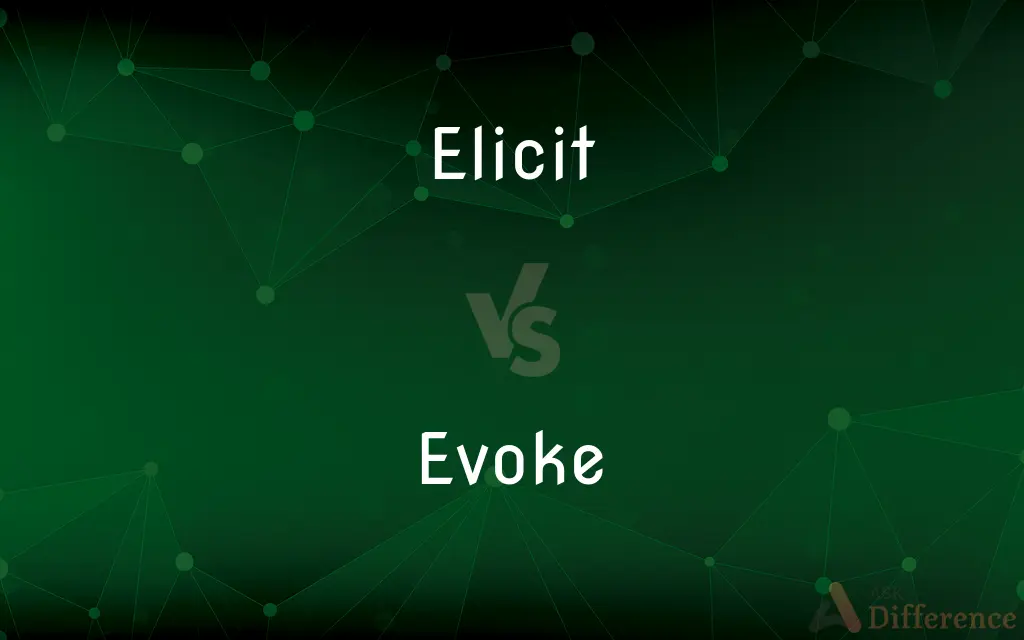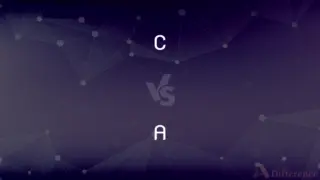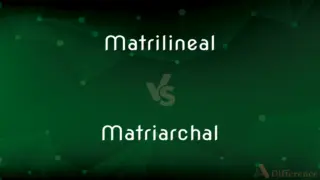Elicit vs. Evoke — What's the Difference?
Edited by Tayyaba Rehman — By Fiza Rafique — Updated on May 3, 2024
Elicit means to draw out a response or reaction through careful questioning or discussion, whereas evoke implies invoking a reaction, often emotional or sensory, more indirectly.

Difference Between Elicit and Evoke
Table of Contents
ADVERTISEMENT
Key Differences
Elicit often refers to obtaining information or a reaction through deliberate efforts or questioning. For example, a therapist might elicit feelings from a patient by asking specific, guiding questions. On the other hand, evoke generally pertains to bringing forth a reaction or memory, often through something less direct like art or music, which stirs emotions or recollections without explicit prompting.
Elicit is commonly used in contexts like law enforcement or research where clarity and specific responses are required from individuals. For instance, a lawyer will elicit a clear answer from a witness during cross-examination. Whereas, evoke is more likely used in artistic or literary contexts where the response can be subjective and varied, as a novel might evoke nostalgia.
Elicit might require active engagement and a specific intention to draw out responses. For example, a journalist elicits information through pointed interviews. Conversely, evoke can occur passively, such as when an old song on the radio evokes memories of summer.
In psychological terms, to elicit is often to trigger a controlled response in an experimental or therapeutic setting. Meanwhile, evoke might be used to describe the spontaneous emergence of thoughts and feelings in a patient, often through less structured stimuli.
While eliciting usually results in concrete and definable outcomes, evoking tends to produce intangible and sometimes unforeseeable reactions, reflecting the more subtle nature of evoke as opposed to the more straightforward and targeted approach of elicit.
ADVERTISEMENT
Comparison Chart
Primary Usage
Obtaining specific information
Bringing forth emotions or memories
Contexts
Legal, therapy, research
Arts, literature, music
Interaction Type
Direct and intentional
Indirect and spontaneous
Response Type
Specific and measurable
Broad and subjective
Examples
Questioning in an interview
Music triggering nostalgia
Compare with Definitions
Elicit
To derive by reasoning.
The scholar elicited a conclusion from the complex data.
Evoke
To call up or produce (memories, feelings, etc.).
The photo evoked memories of her childhood.
Elicit
To draw out or bring forth.
The teacher's questions elicited thoughtful responses from the students.
Evoke
To summon or call forth.
The ritual was supposed to evoke ancient spirits.
Elicit
To provoke a response by a specific action.
The new policy elicited strong reactions from the community.
Evoke
To suggest through artistry and imagination.
The novel's setting evokes a war-torn country.
Elicit
To obtain through careful manipulation.
The negotiator elicited favorable terms from the deal.
Evoke
To stimulate to action.
The injustice evoked a strong desire to act in the protestors.
Elicit
To extract information or a reaction.
Investigators were able to elicit the truth during the interrogation.
Evoke
To create anew, especially by means of the imagination.
The artist's work evokes a sense of unease.
Elicit
To call forth, draw out, or provoke (a response or reaction, for example)
"Interrogators were reportedly frustrated by their inability to elicit useful information from him" (Jane Mayer).
Evoke
To give rise to; draw forth; produce
Words that evoked a smile.
Actions that evoked mistrust.
Elicit
To evoke, educe (emotions, feelings, responses, etc.); to generate, obtain, or provoke as a response or answer.
Evoke
To call to mind, as by suggestion, association, or reference
Songs that evoke old memories.
A speech that evoked the words of Jefferson.
Elicit
To draw out, bring out, bring forth (something latent); to obtain information from someone or something.
Fred wished to elicit the time of the meeting from Jane.
Did you elicit a response?
Evoke
To create anew, especially by means of the imagination
A novel that accurately evokes the Depression.
Elicit
To use logic to arrive at truth; to derive by reason
Evoke
To summon by magical or supernatural power; conjure.
Elicit
(obsolete) Elicited; drawn out; made real; open; evident.
Evoke
To call out; to draw out or bring forth.
Elicit
Elicited; drawn out; made real; open; evident.
Evoke
To cause the manifestation of something (emotion, picture, etc.) in someone's mind or imagination.
Being here evokes long forgotten memories.
Seeing this happen equally evokes fear and anger in me.
The book evokes a detailed and lively picture of what life was like in the 19th century.
Elicit
To draw out or entice forth; to bring to light; to bring out against the will; to deduce by reason or argument; as, to elicit truth by discussion.
Evoke
To elicit a response.
Elicit
Call forth (emotions, feelings, and responses);
Arouse pity
Raise a smile
Evoke sympathy
Evoke
To call out; to summon forth.
To evoke the queen of the fairies.
A regulating discipline of exercise, that whilst evoking the human energies, will not suffer them to be wasted.
Elicit
Deduce (a principle) or construe (a meaning);
We drew out some interesting linguistic data from the native informant
Evoke
To call away; to remove from one tribunal to another.
Elicit
Derive by reason;
Elicit a solution
Evoke
Call forth (emotions, feelings, and responses);
Arouse pity
Raise a smile
Evoke sympathy
Evoke
Call forth;
Her behavior provoked a quarrel between the couple
Evoke
Deduce (a principle) or construe (a meaning);
We drew out some interesting linguistic data from the native informant
Evoke
Evoke or call forth, with or as if by magic;
Raise the specter of unemployment
He conjured wild birds in the air
Stir a disturbance
Call down the spirits from the mountain
Evoke
Call to mind or evoke
Common Curiosities
What is an example of a situation where you might evoke a feeling?
Watching a powerful film might evoke sadness or joy, depending on its content and the viewer's personal connections.
In a legal context, why is it important to elicit specific responses?
In legal contexts, eliciting specific responses ensures clear, unambiguous information crucial for decision-making processes.
How does evoke differ from elicit in usage?
Evoke is often used in emotional, artistic contexts to indicate indirectly bringing forth feelings or memories, while elicit is used in scenarios requiring direct and clear responses.
Is it easier to elicit or evoke responses in an audience?
It depends on the context and the audience's engagement; eliciting responses may require more direct interaction, while evoking can occur through passive engagement.
What techniques are used to elicit responses in therapy?
Techniques such as open-ended questions or targeted exercises are used in therapy to elicit responses.
Why might an artist aim to evoke rather than elicit?
Artists may aim to evoke to allow for personal interpretation and emotional response, making the experience more personal for the audience.
Can evoke and elicit be used interchangeably?
Generally, no, because elicit implies a direct extraction of responses, while evoke involves a more indirect, spontaneous generation of emotions or thoughts.
What kind of reactions does evoke usually pertain to?
Evoke typically pertains to emotional or sensory reactions.
Can weather evoke feelings?
Yes, certain weather conditions, like rain or sunshine, can evoke feelings of sadness or happiness respectively.
What does it mean to elicit information?
To elicit information means to draw out responses or facts through specific questioning or interaction.
Can a smell evoke memories?
Yes, smells are particularly potent in evoking memories due to their direct connection to the brain's limbic system.
How does music evoke emotions?
Music evokes emotions through its melodies, rhythms, and harmonies which can resonate with personal experiences or innate feelings.
What does it mean to elicit a confession?
To elicit a confession means to obtain an admission of guilt through questioning or negotiation.
How do advertisements use the concepts of elicit and evoke?
Advertisements may elicit specific consumer responses through direct calls to action, whereas they evoke emotions or desires through imagery and storytelling.
What impact does eliciting feedback have in a business environment?
Eliciting feedback can lead to improvements and adjustments in strategies or products, enhancing overall business performance.
Share Your Discovery

Previous Comparison
C vs. A
Next Comparison
Matrilineal vs. MatriarchalAuthor Spotlight
Written by
Fiza RafiqueFiza Rafique is a skilled content writer at AskDifference.com, where she meticulously refines and enhances written pieces. Drawing from her vast editorial expertise, Fiza ensures clarity, accuracy, and precision in every article. Passionate about language, she continually seeks to elevate the quality of content for readers worldwide.
Edited by
Tayyaba RehmanTayyaba Rehman is a distinguished writer, currently serving as a primary contributor to askdifference.com. As a researcher in semantics and etymology, Tayyaba's passion for the complexity of languages and their distinctions has found a perfect home on the platform. Tayyaba delves into the intricacies of language, distinguishing between commonly confused words and phrases, thereby providing clarity for readers worldwide.













































